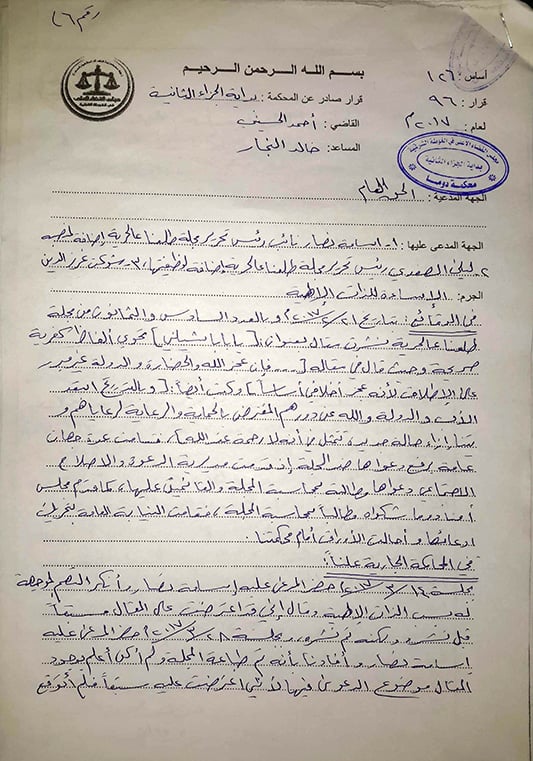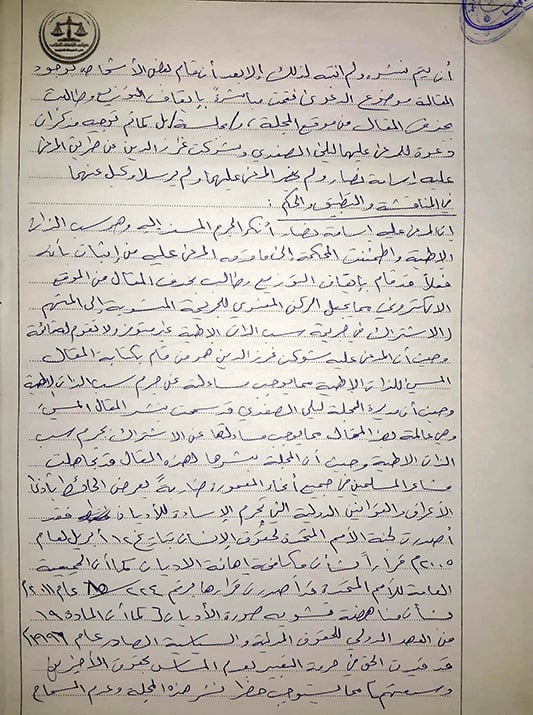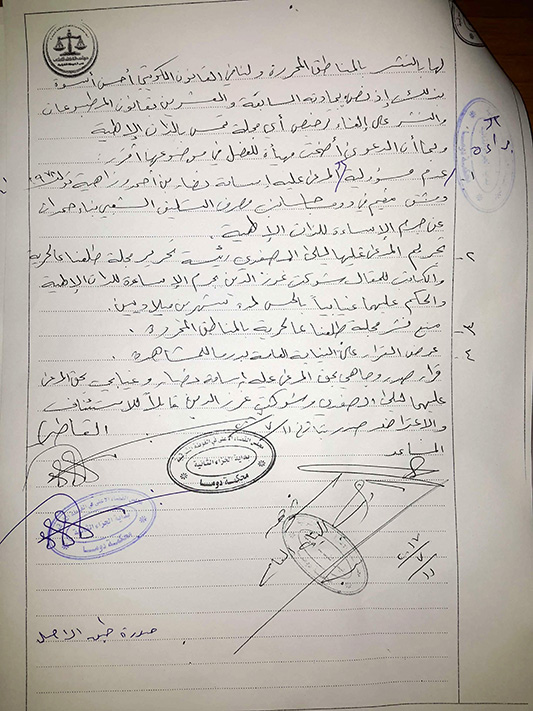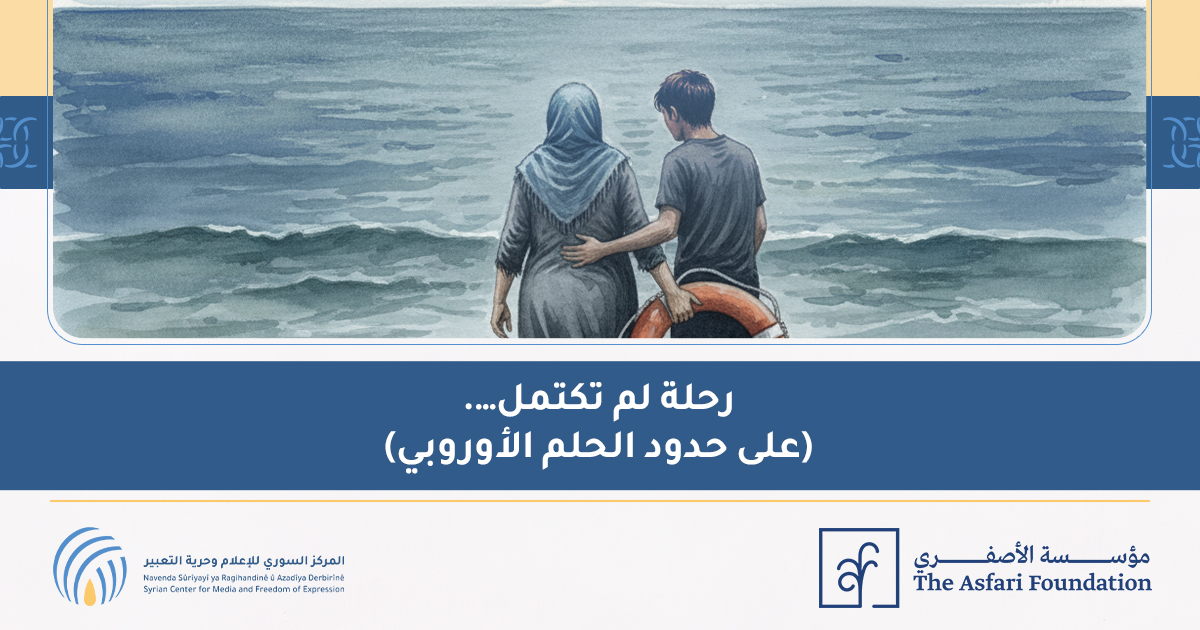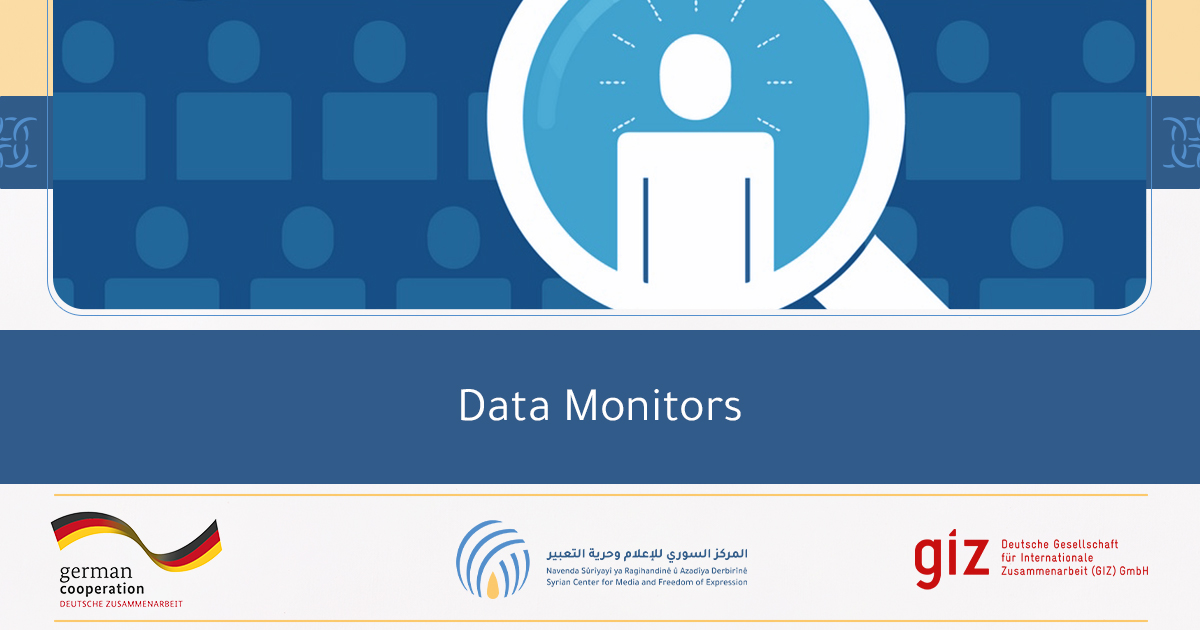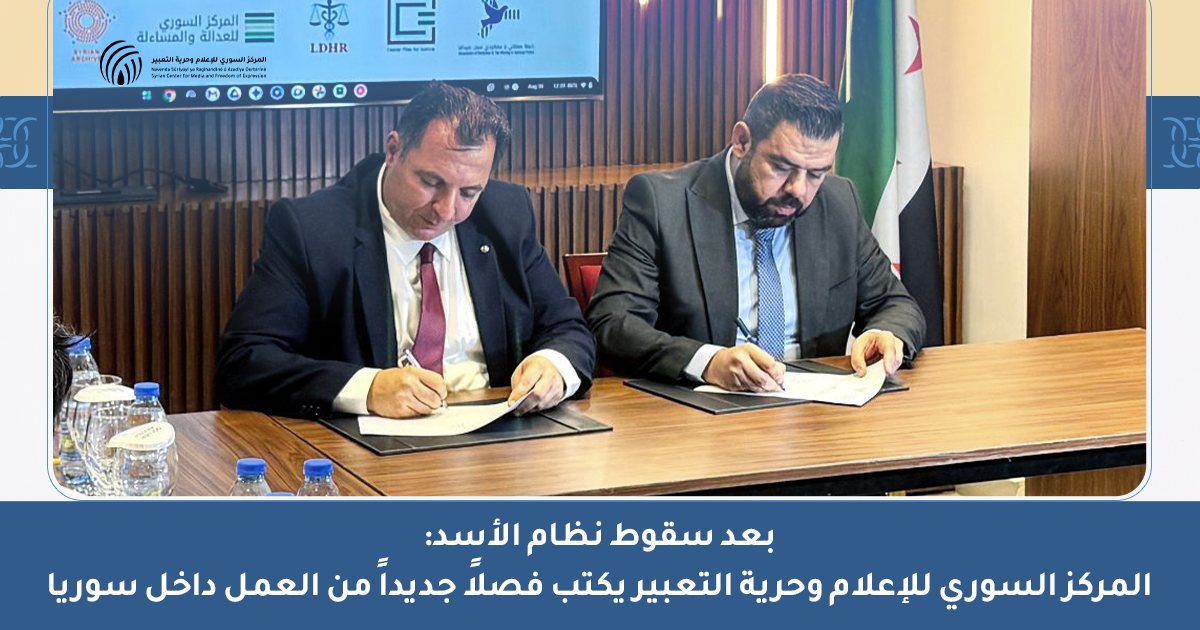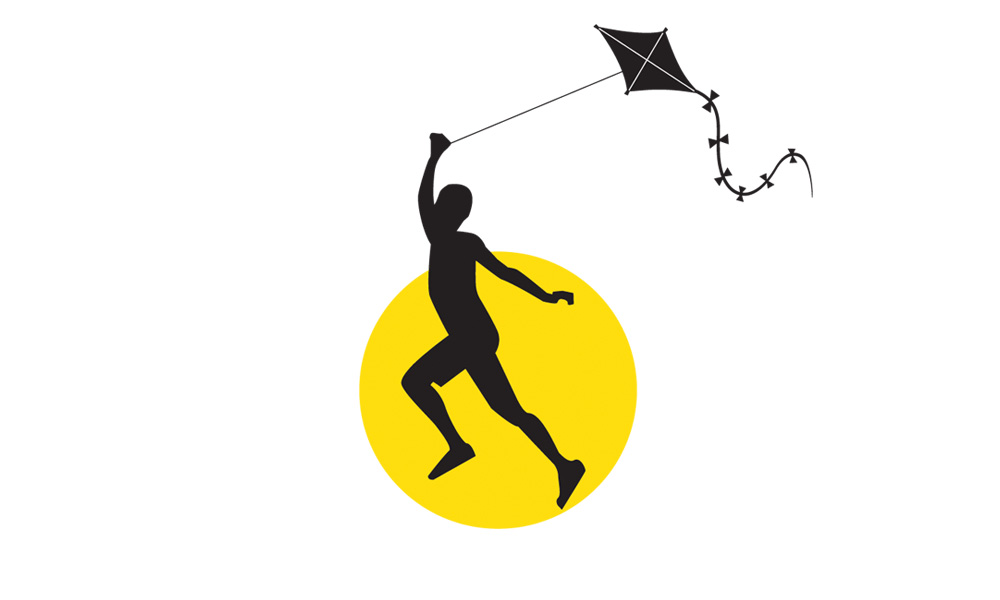
On July 11, 2017, the Second Court of First Instance of Douma in Eastern Ghouta issued its decision on the issue of Freedom Raise magazine, which aroused widespread controversy among Syrian public opinion regarding the limits of freedom of expression and respect for beliefs.
The order acquitted the deputy editor-in-chief, Osama Nassar, who lives in Douma; while the editor-in-chief of the magazine, Leila Safadi and the author of the article that the attorney general considered blasphemous, Shawkat Gharzeddin, were convicted. Additionally, the magazine itself was condemned as a legal personality. The court sentenced Leila Safadi to two months in prison in absentia, and the writer of the article Shawkat Gharzeddin received the same sentence. The order also prohibits the publication of Freedom Raise magazine in liberated areas.
The preamble to the order stated that it is based on international charters and resolutions issued by the United Nations, which urge respect for religions and beliefs, and the inviolability of the rights and reputation of others, and that the magazine by publishing this article has “ignored the feelings of Muslims all over the globe.”
Commenting on the decision, Osama Nassar said: “Many friends consider that the problem has passed with minimum damage; compared to potential losses such as the ignition of great strife or endangering people’s lives. However, I think it would have been possible to pass it at a lower cost, but politicizing the issue and making it an opportunity to liquidate opponents, or as a space for ideological calculations prevented that. The magazine is five years old, has produced 87 issues containing hundreds of journalism items, written by most of the Syrian journalists and activists… It makes no sense to consider that this case is related to Freedom Raise alone, and to sentence it to death and execute it.”
For her part, Laila Safadi expressed her relief at the acquittal of Osama, while disapproving of the magazine’s condemnation and preventing its publication in the liberated areas. She also expressed her dissatisfaction with her sentence, which is equal to the author’s sentence, despite her declared apology for publishing the article and her denying that there were any intentions of insult, also her emphasis on the obligation to respect all religious and ideological beliefs.”
In response to the question about the possibility of appeal, Safadi replied that “it is possible, but she is waiting for an initiative from the magazine’s team and its management, or from interested journalists and activists, if they were concerned in this issue.”
It is noteworthy that the Second Court of First Instance follows the Supreme Judicial Council, which in turn follows the Unified Command in Eastern Ghouta, that is run by Jaysh Al-Islam alone after the withdrawal of the other factions from Al Ghouta. It took the court more than four months to reach the ruling, which included many sessions attended by Osama Nassar as a representative of the magazine.
Copy of court order
